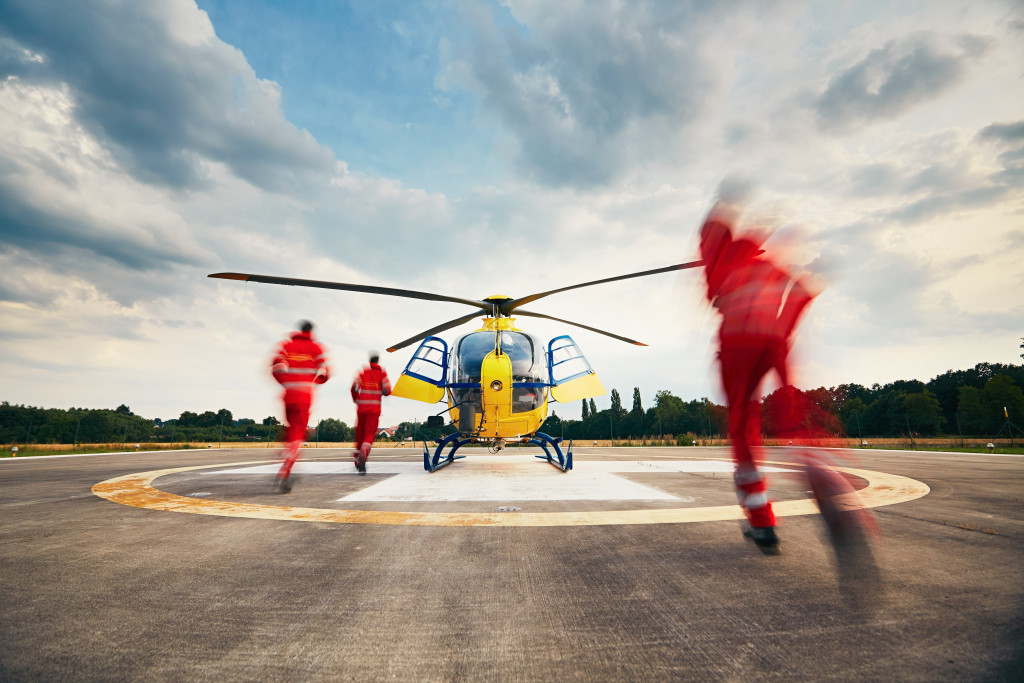- Choose from various certifications and education levels to become a rapid-response medical responder.
- Gain practical experience by seeking job opportunities, volunteering in the local fire department, and networking with other professionals.
- Continuously learn and grow your skillset by taking continuing education courses and joining medical societies.
- Emphasize your qualifications and experience on your resume to get hired for jobs in the medical field.
Are you looking for a career that is both rewarding and financially profitable? If you have a passion for helping others in times of emergency, a career in rapid-response medical care might be the perfect fit for you. As a medical responder, your job would be to provide immediate, on-site care to patients during critical situations, such as car accidents, natural disasters, or medical emergencies. Here’s a closer look at what it takes to start a career in this field and actionable steps to get started.
Choose Your Path:
First and foremost, you must choose your path in the medical field. There are various certifications and education levels required to become a medical responder depending on the specific role you wish to pursue. Here are some options:
Registered Nurse (RN)
As a Registered Nurse (RN), you will be responsible for providing patient care and assisting physicians in the diagnosis and treatment of various medical conditions. You must have a diploma or degree in nursing from an accredited university, as well as obtain licensure in your state of residence. In addition, you may need to complete additional certifications depending on the specific area of rapid response you would like to focus on.
Emergency Medical Technician (EMT)
An Emergency Medical Technician (EMT) is responsible for providing medical care to patients in emergency situations. To become one, you must have a high school diploma or equivalent and complete an approved EMT certification program. You must also pass the National Registry of Emergency Medical Technicians (NREMT) exam as well as obtain state licensure.
Paramedic
Paramedics are responsible for providing more advanced medical care than EMTs, such as administering medications and interpreting vital signs. To become a paramedic, you must have a high school diploma or equivalent and complete an approved paramedic certification program.

Gain Experience:
Beyond the classroom, gaining practical experience is critical to a successful career in rapid-response medical care. Look for opportunities to shadow or intern with professionals in your chosen field. Here are some ideas:
Apply for Jobs:
With your education and experience in hand, it’s time to start applying for jobs. Rapid response medical care requires a high level of skill and responsibility, so be sure to highlight your qualifications and any relevant experience on your resume. Consider working in a hospital, ambulance service, or fire department, where you can hone your skills and gain exposure to various emergency situations.
Volunteer in The Local Fire Department:
Volunteering in the local fire department is a great way to gain practical experience and get familiar with the work environment. You can assist medical responders, help evacuate people during emergencies, or provide direct assistance to patients. Not only will this be beneficial to your career, but you’ll also be making a difference in your community.
Network:
Building relationships within the medical community is key to growing your career in rapid-response medical care. Networking with other professionals in this field can open doors for new job opportunities and help you stay up to date on industry best practices. Consider joining professional organizations, attending industry events, or even just keeping in touch with former colleagues.

Continuously Learn and Grow:
The healthcare industry is continuously evolving, and it is essential for medical responders to stay up-to-date with the latest techniques and technologies. Participate in continuing education courses to sharpen your skills and advance your career.
If possible, seek out advanced certifications in areas such as trauma, pediatric care, or cardiac care. In addition, consider joining medical societies and attending conferences to stay informed of the latest developments in the industry.
Furthermore, strive to constantly grow and improve your skillset. This will help you remain competitive in the job market and be of service to patients during critical moments.
Starting a career in rapid-response medical care requires dedication, hard work, and a passion for helping others. With the right education, experience, and mindset, you can succeed and make a significant impact on the lives of others. Follow the steps outlined in this blog post, and you will be well on your way to a successful and fulfilling career in rapid-response medical care. Remember to always keep learning and growing, and stay committed to providing the best possible care to those who need it most.

